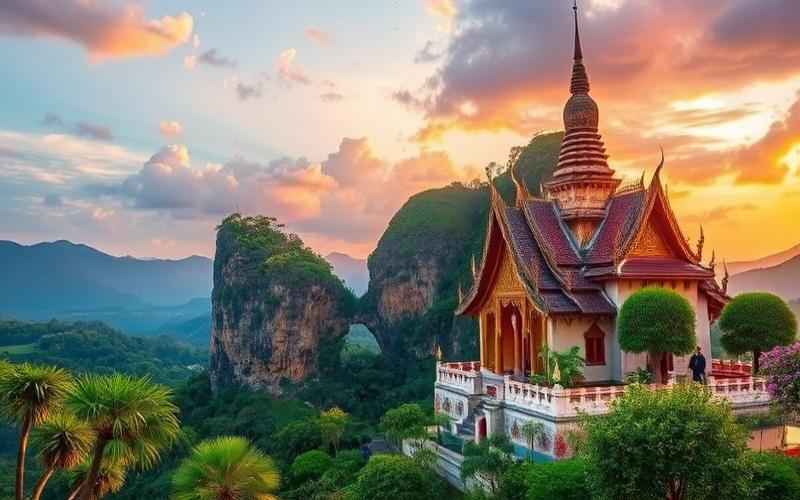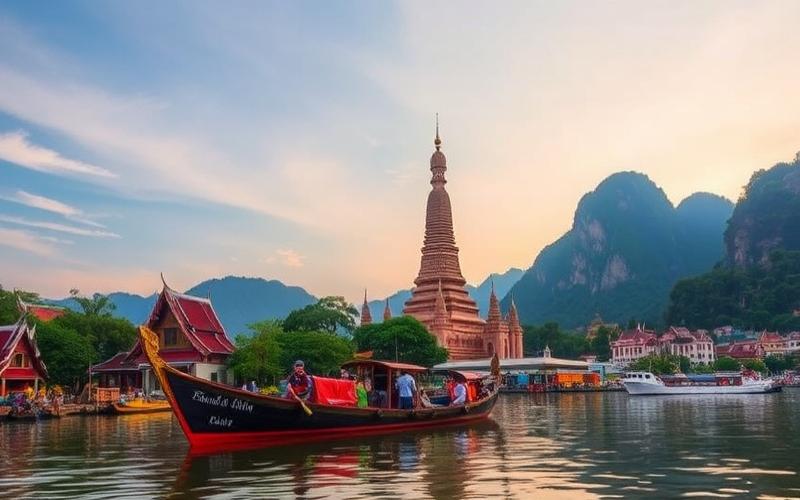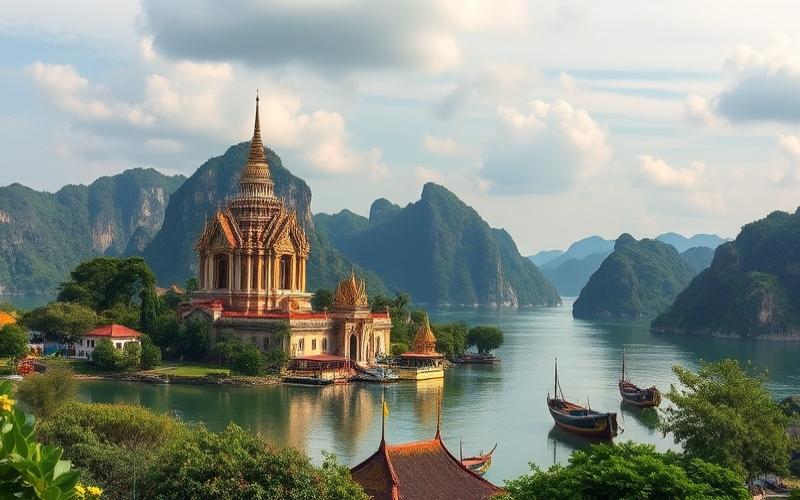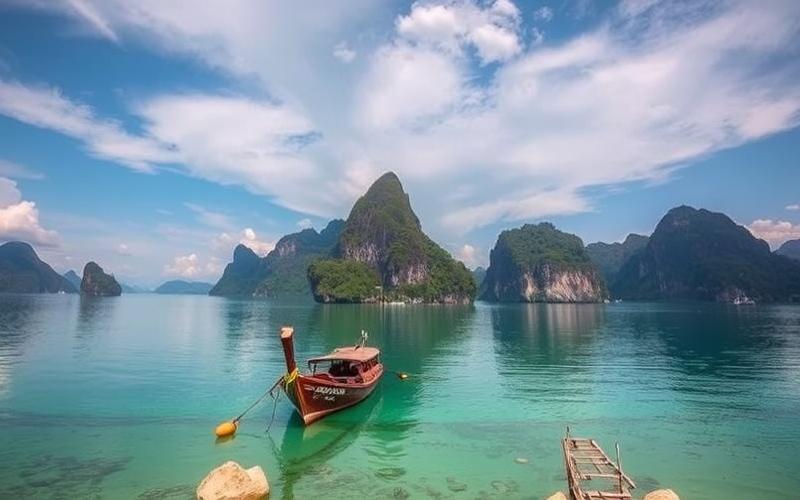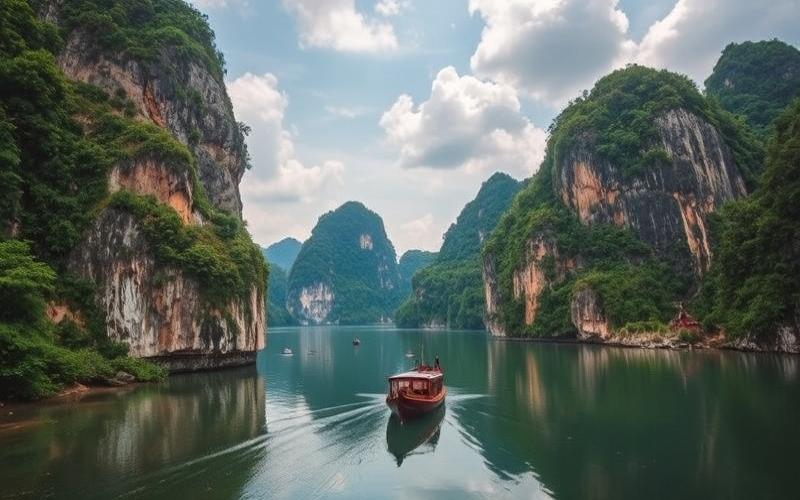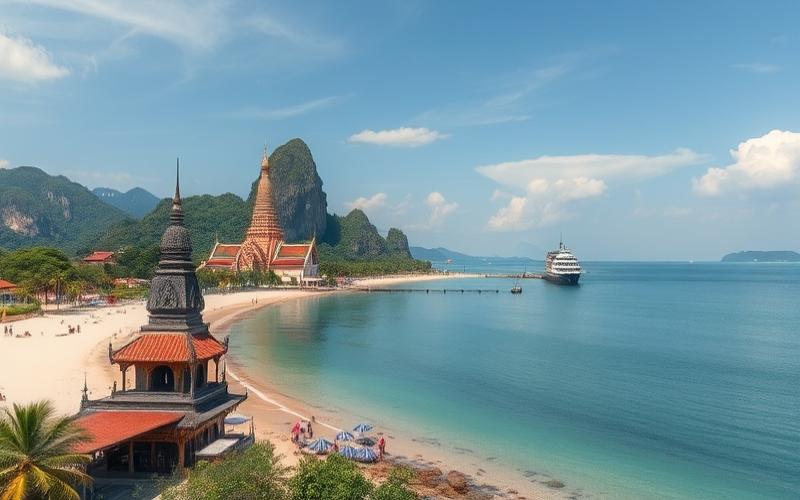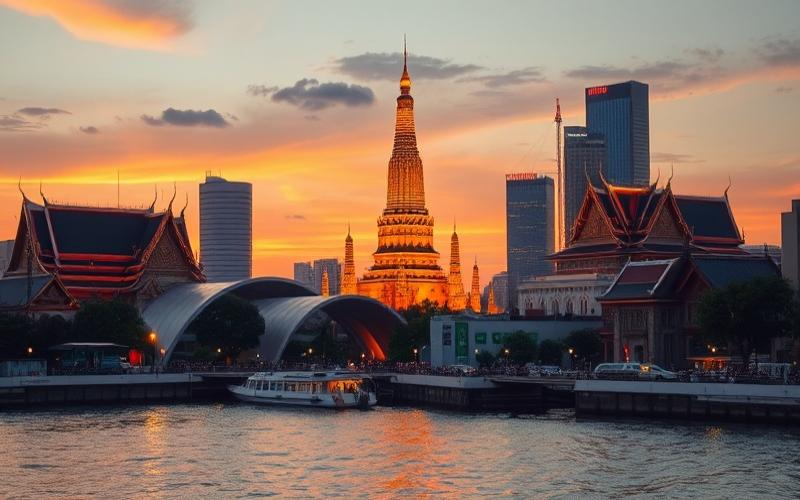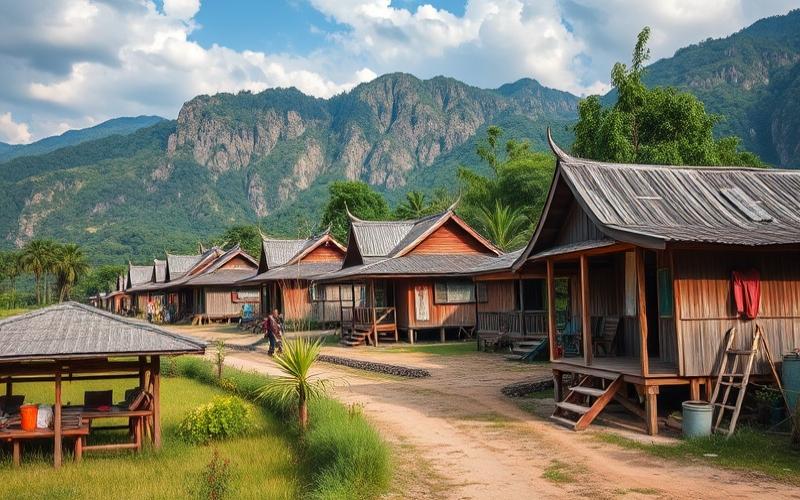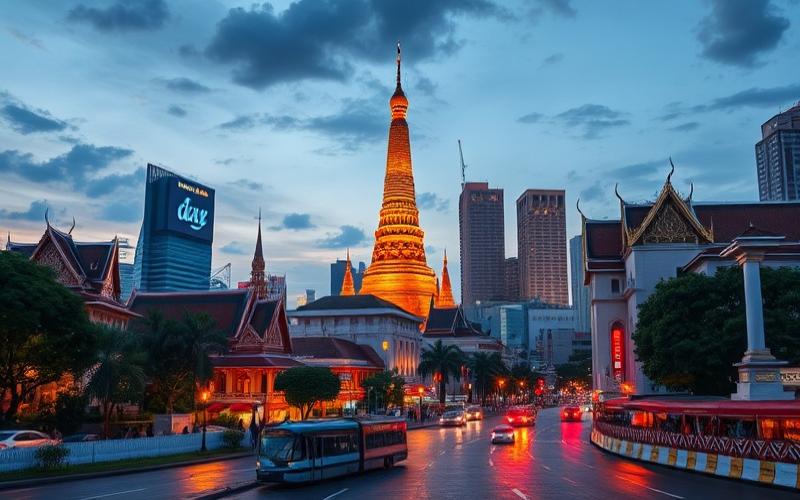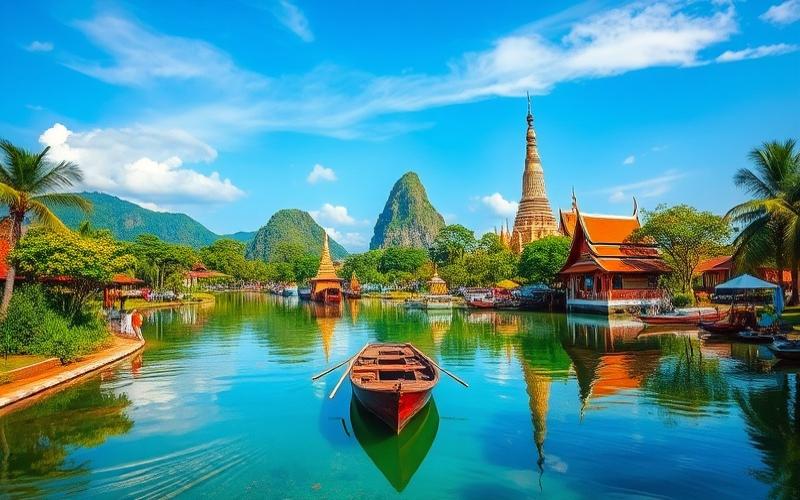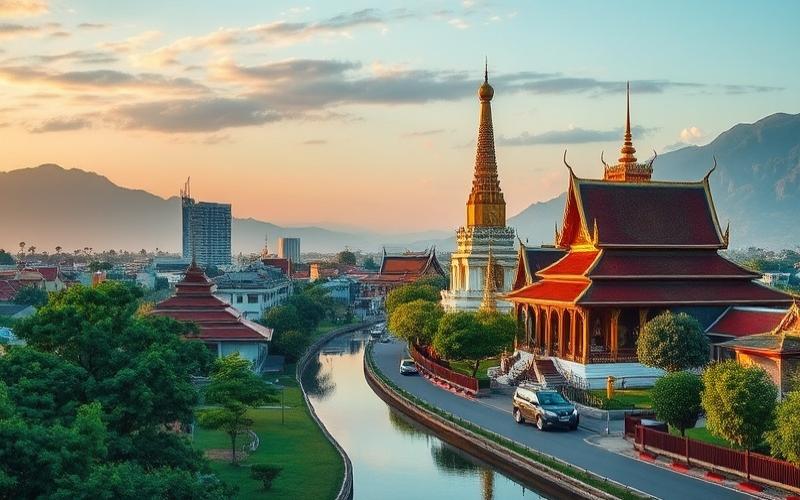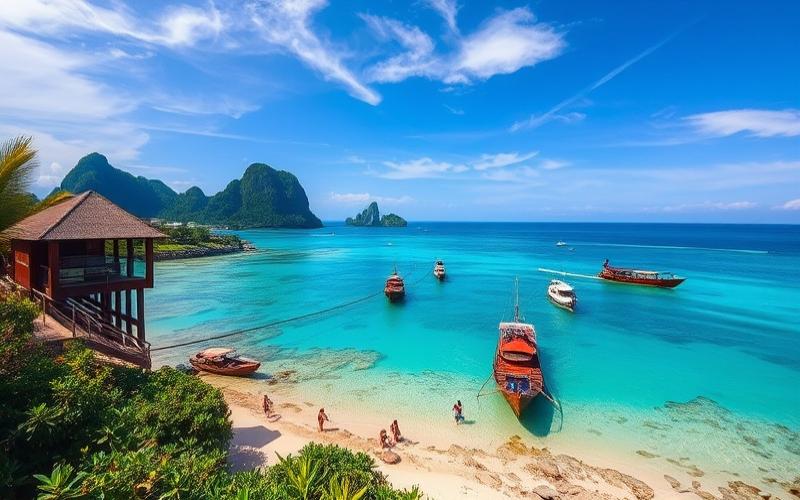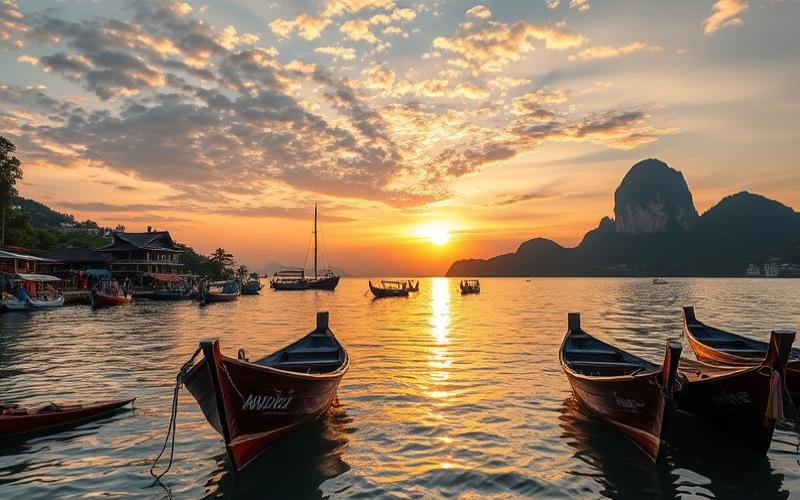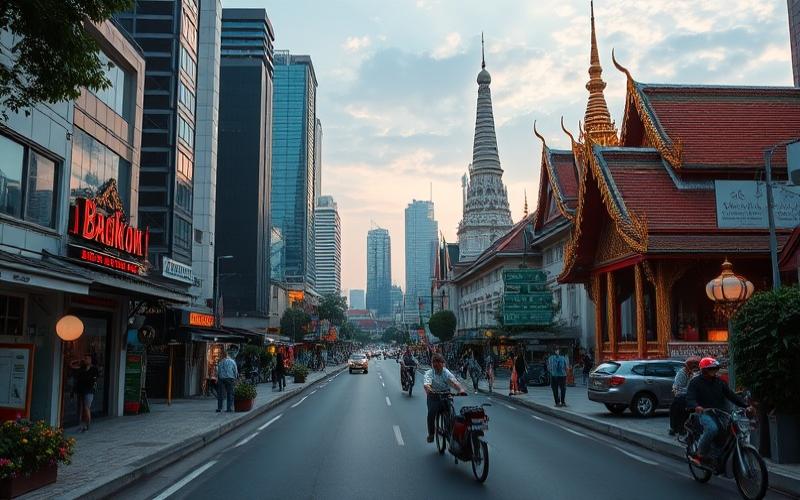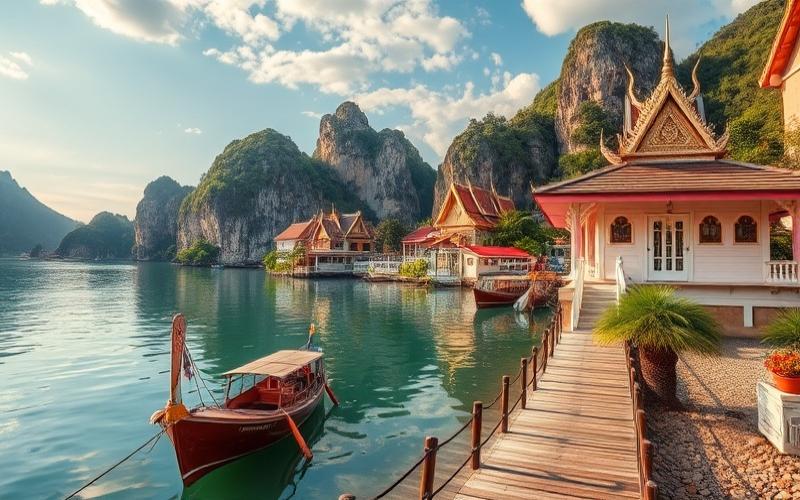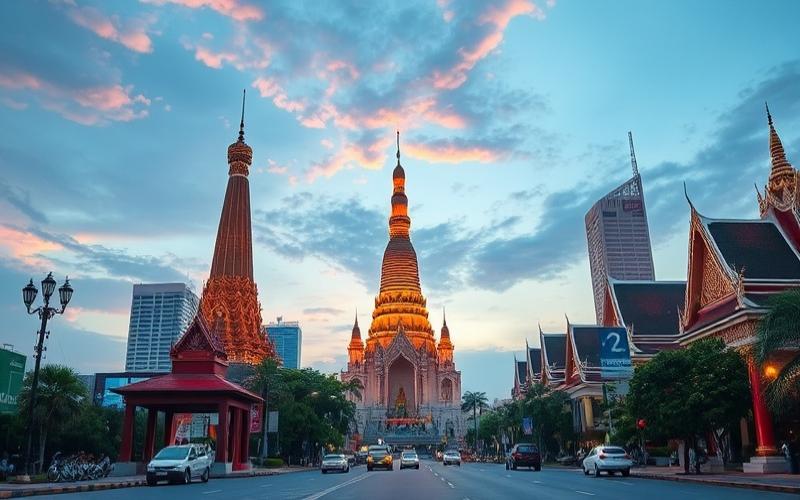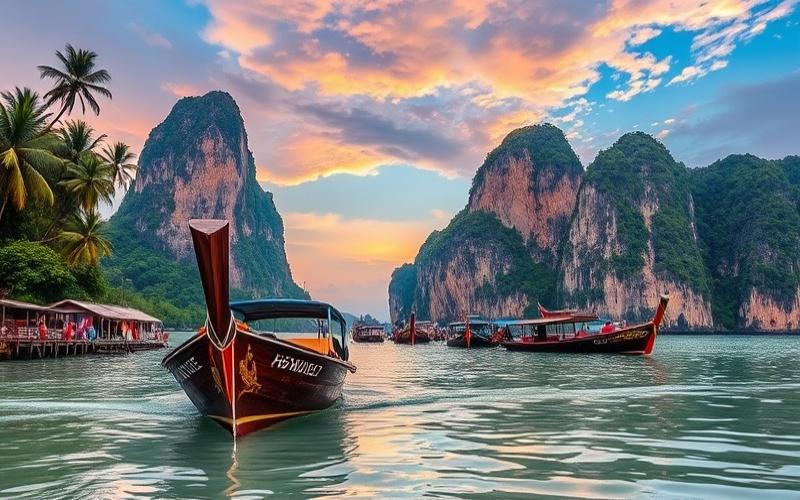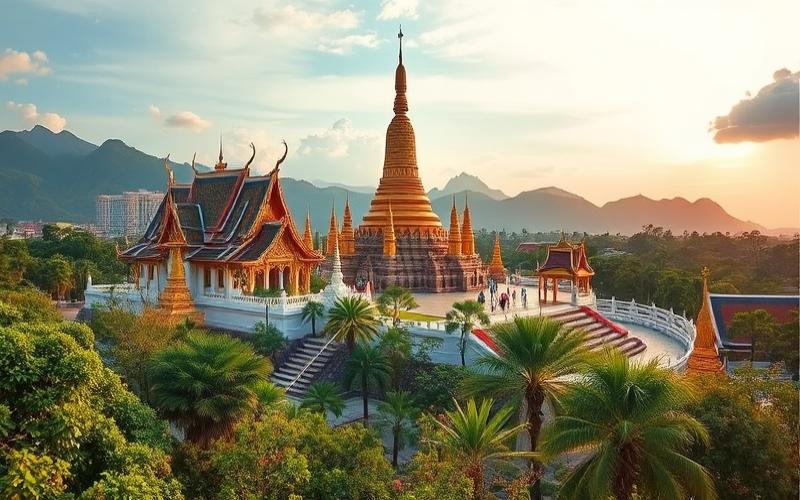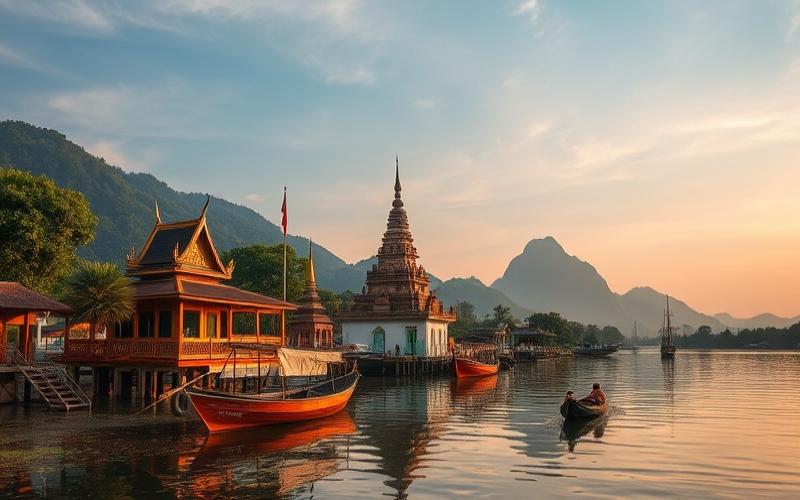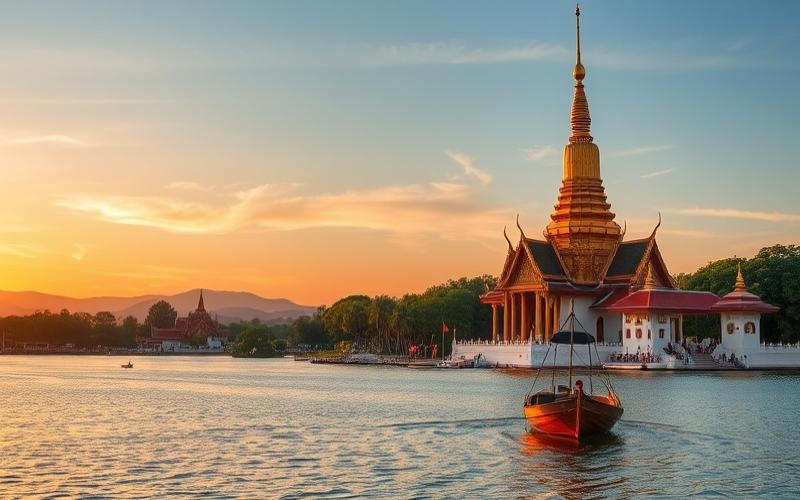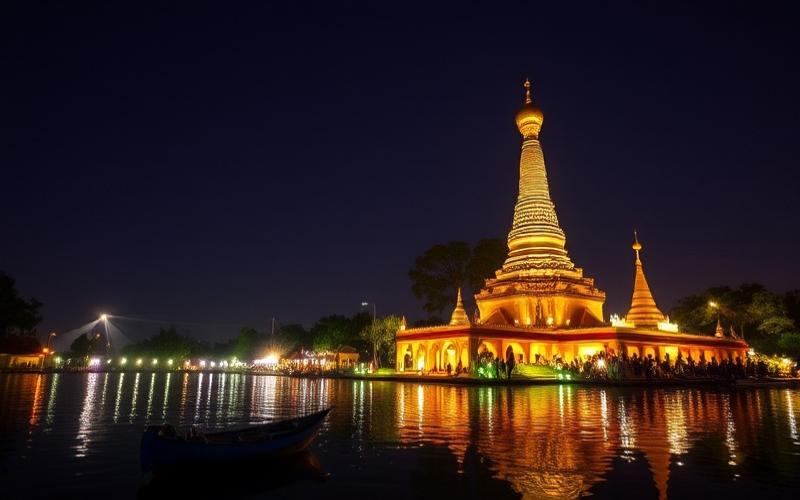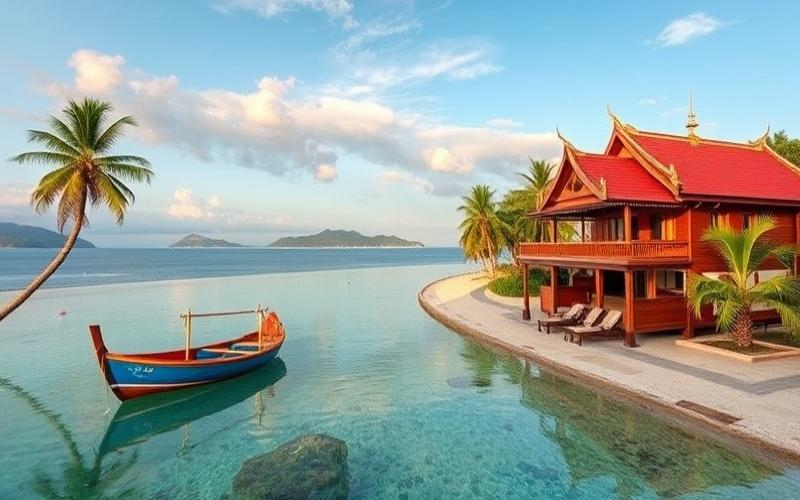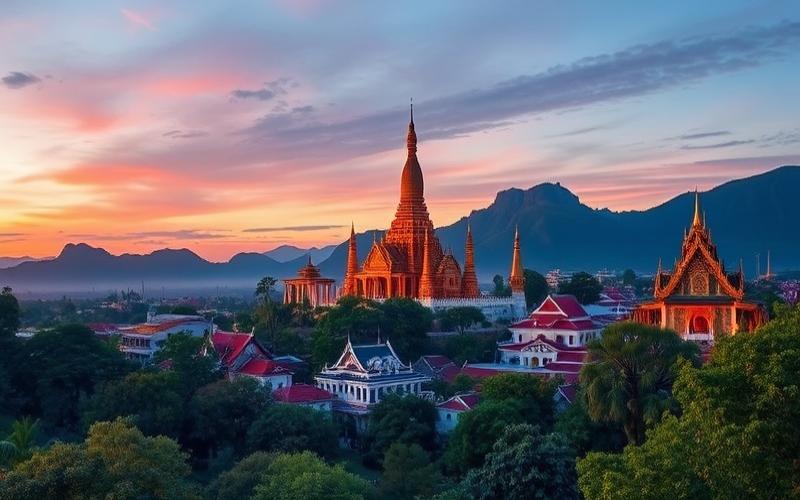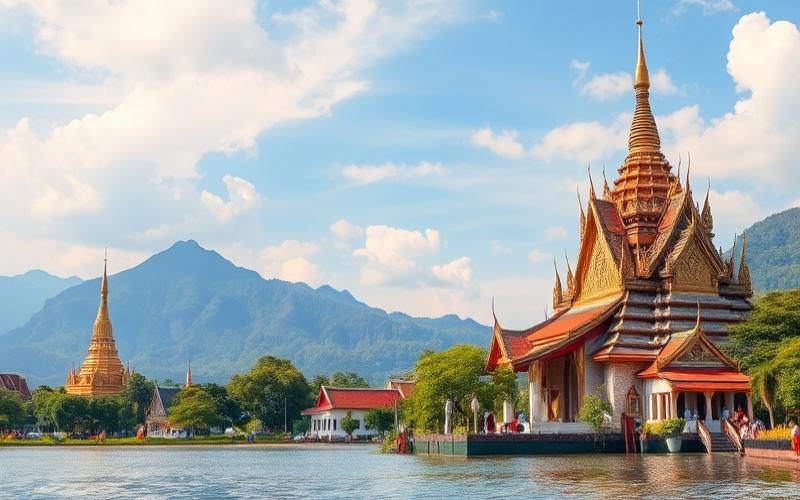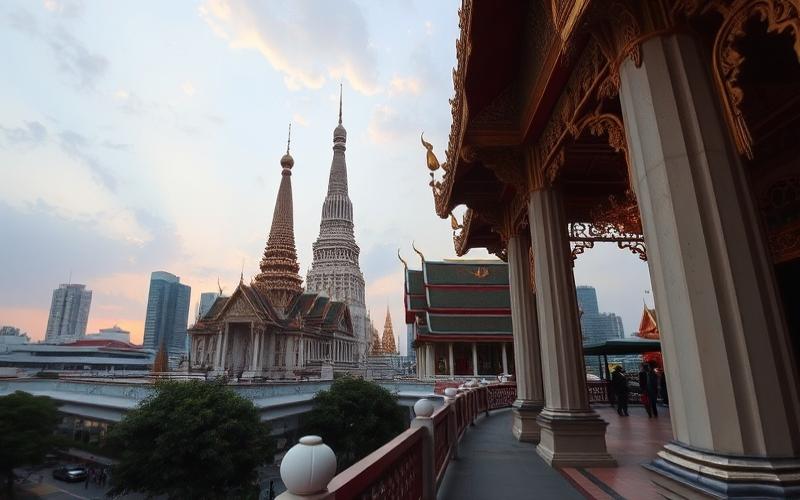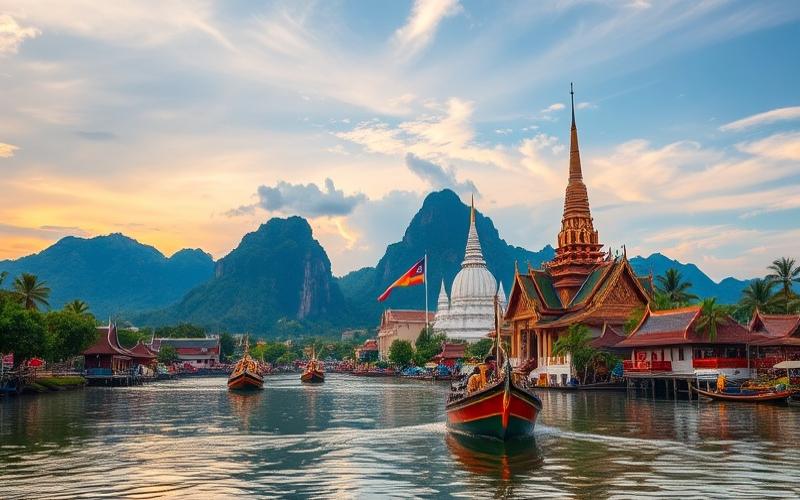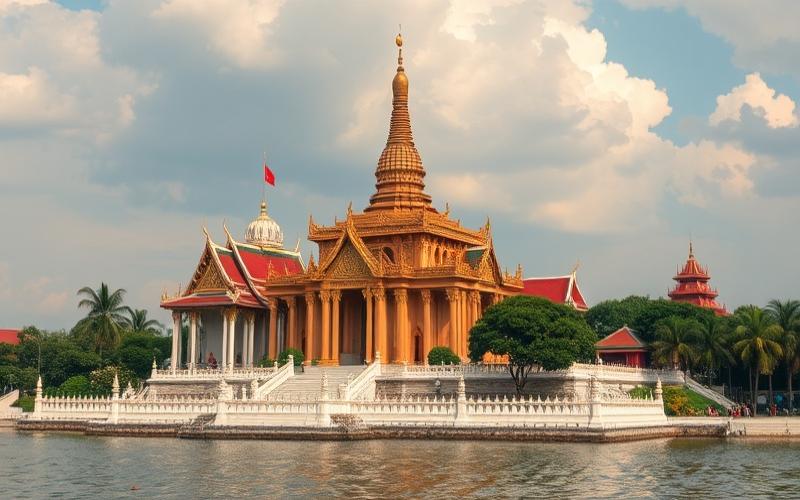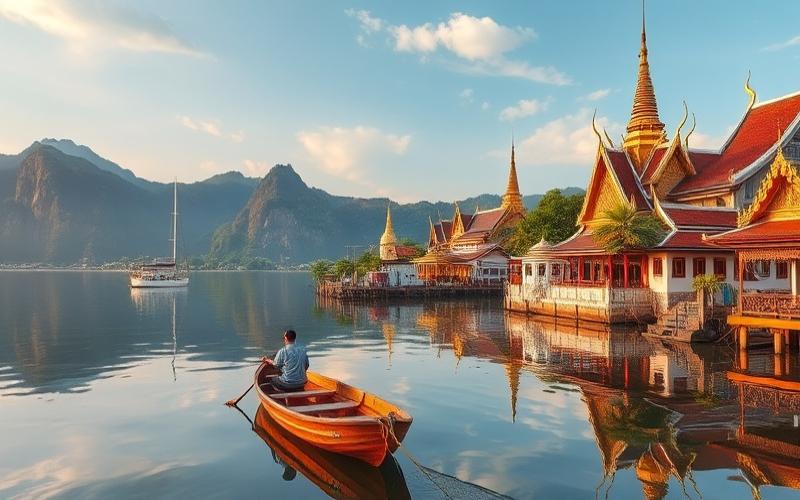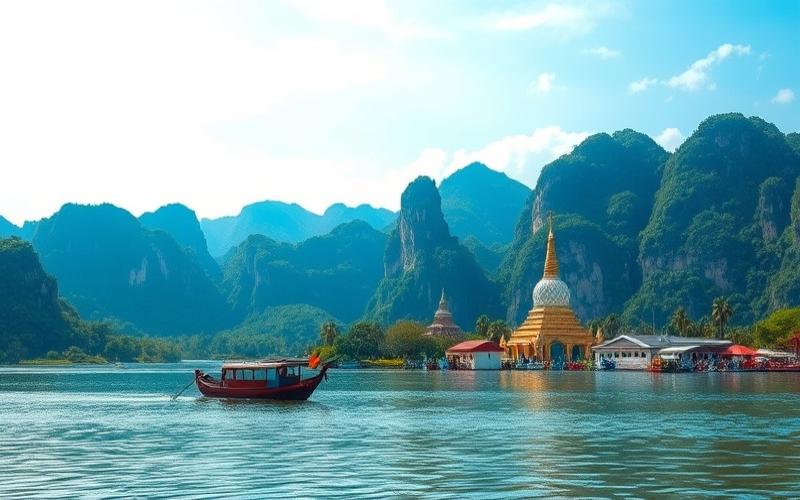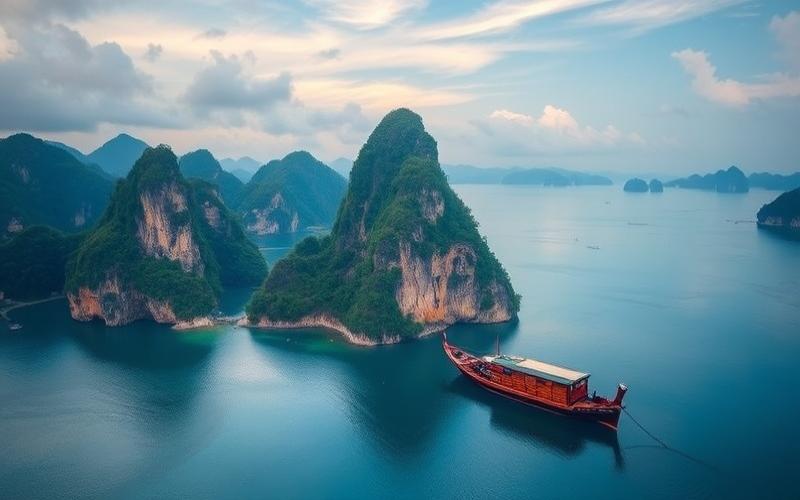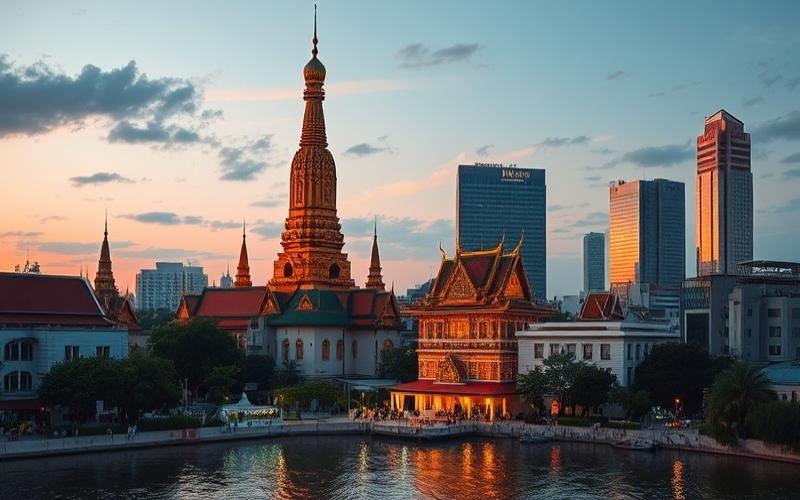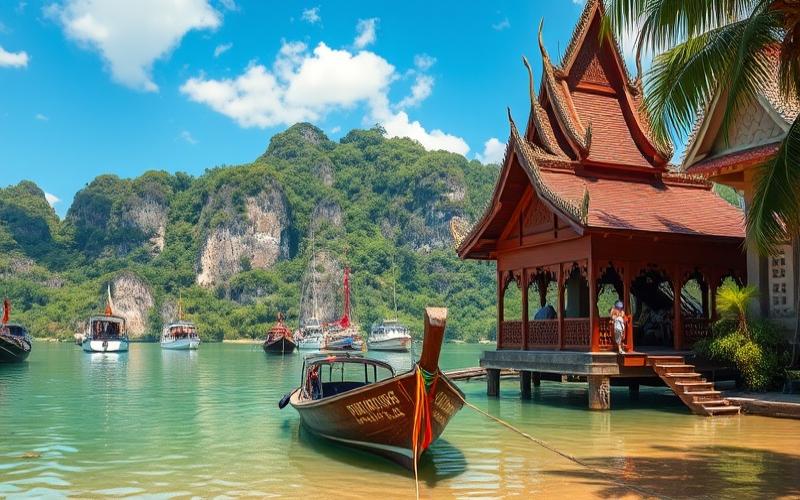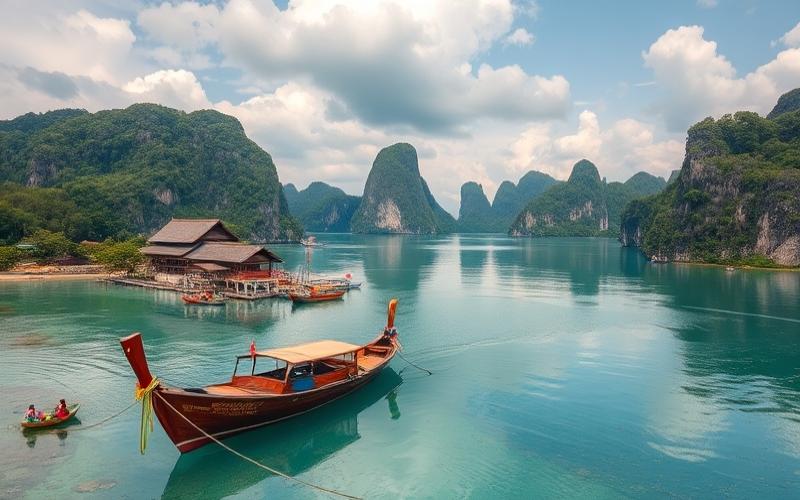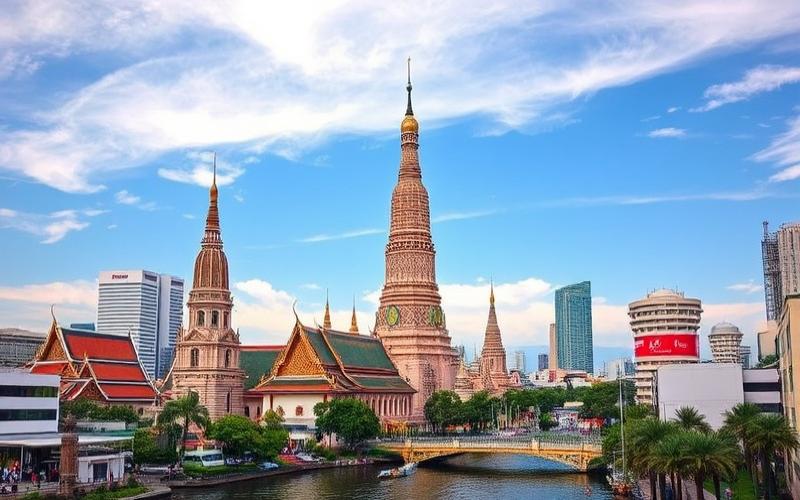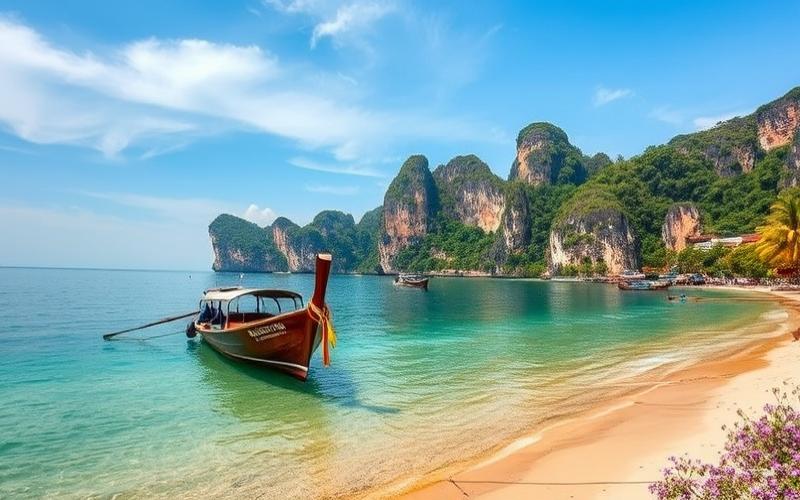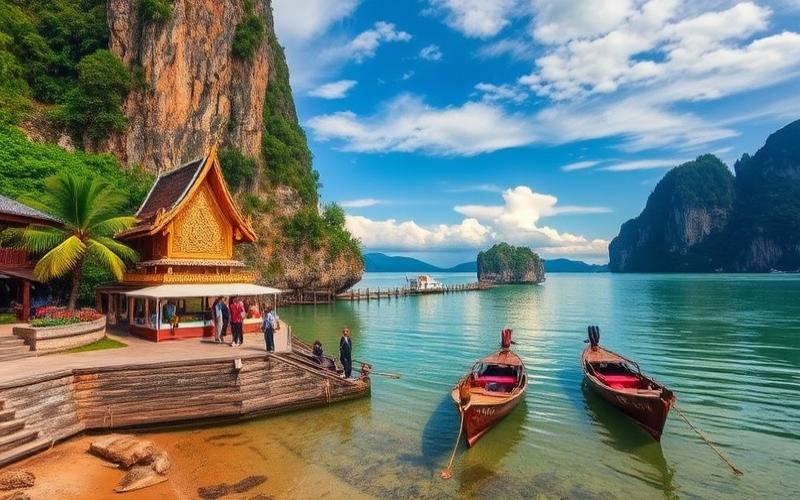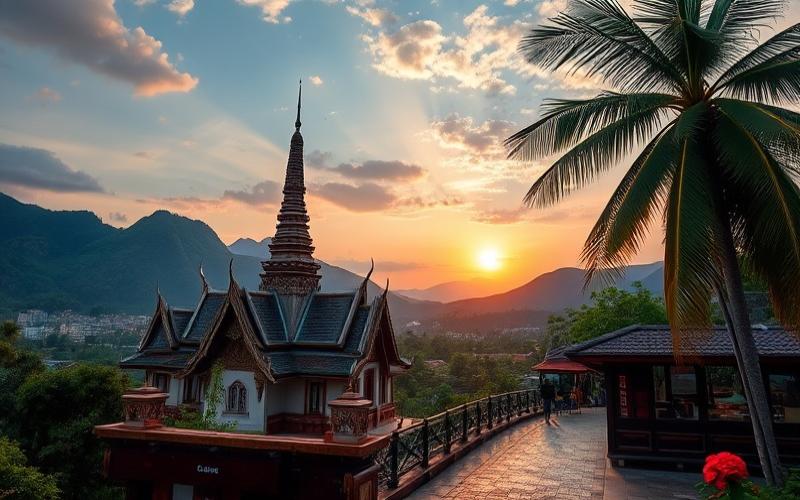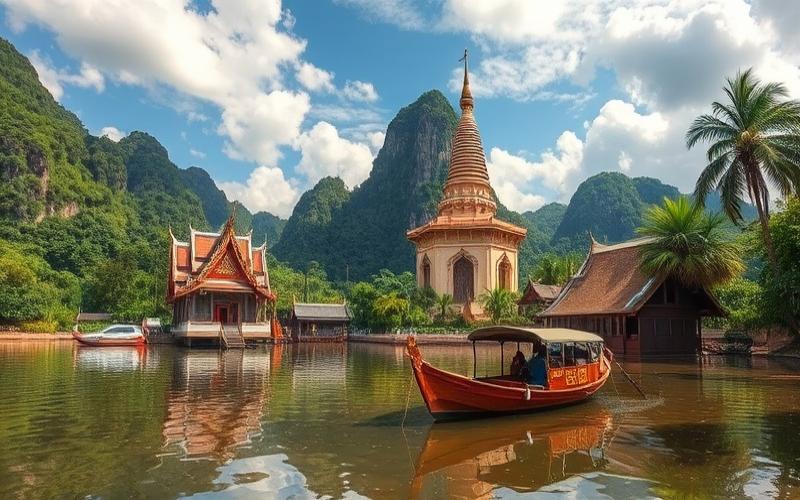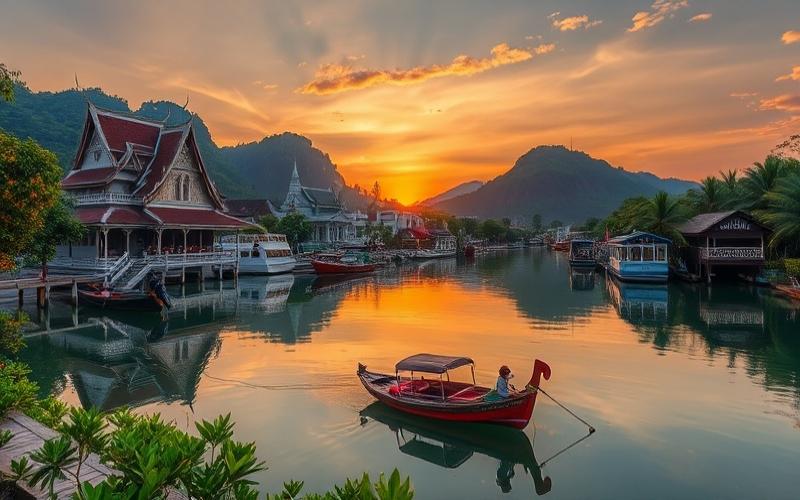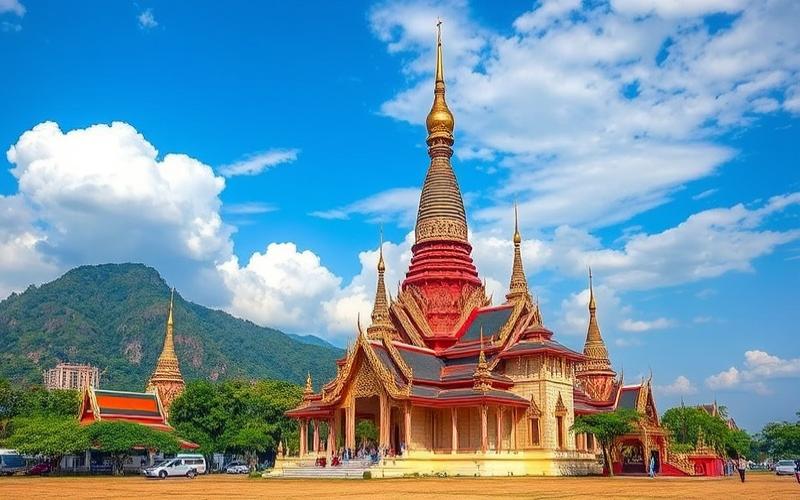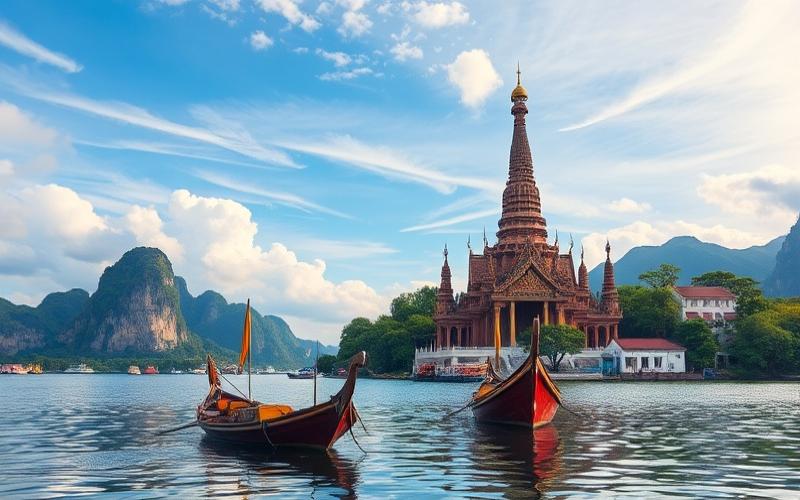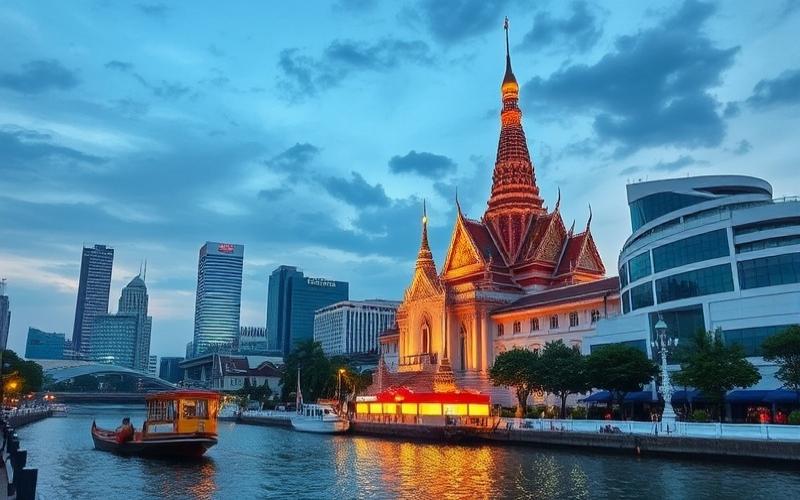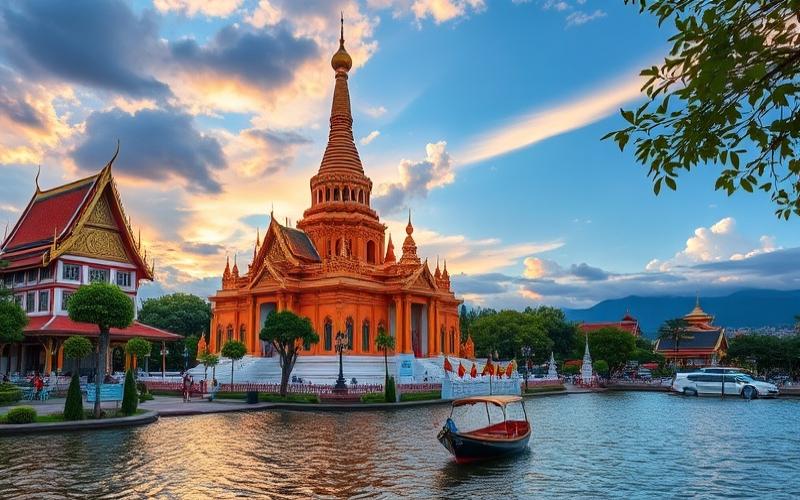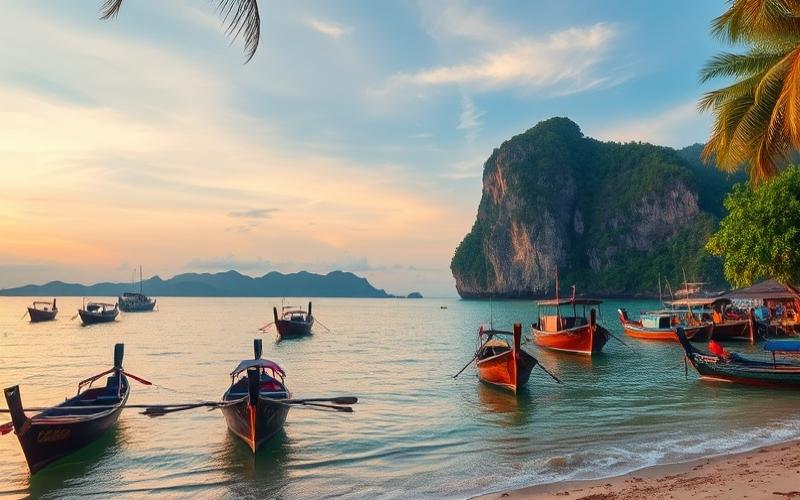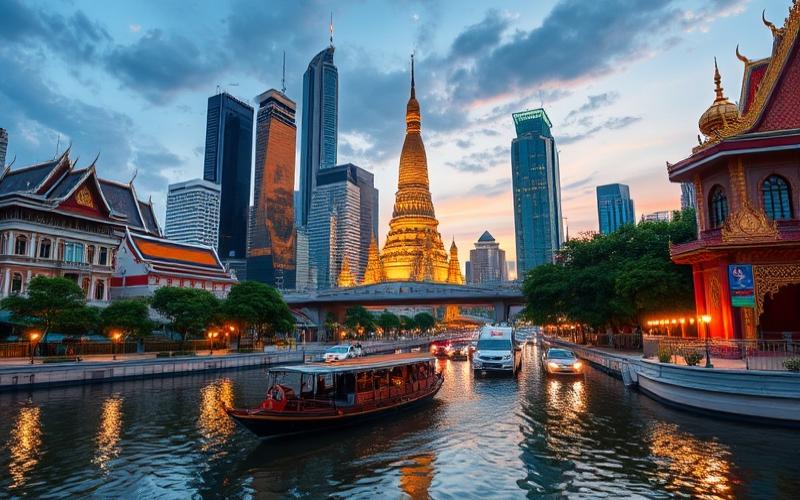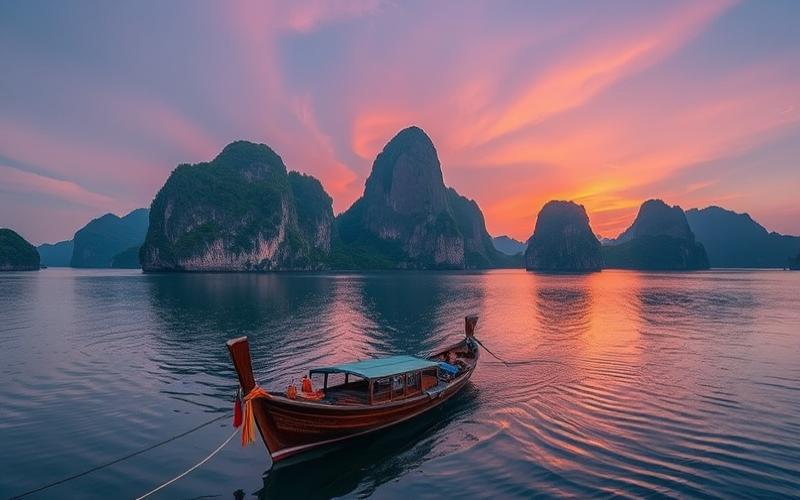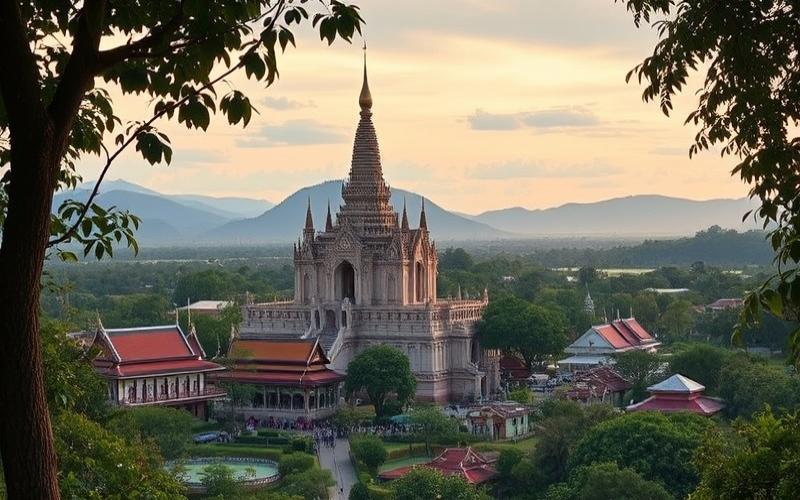
 Published on and written by Cyril Jarnias
Published on and written by Cyril Jarnias
Thailand: A Prime Destination for Retired Expats
As retirees consider spending their golden years abroad, Thailand stands out as one of the most sought-after destinations for senior expats, offering affordable living costs, tropical climate, and enviable quality of life.
To fully enjoy this experience, understanding where and how to invest in this fascinating country is essential. This article explores key investment options, from high-value residential districts to coastal real estate opportunities, helping future expats secure their financial future while enjoying Thailand’s cultural and natural richness.
Good to Know:
Thailand offers specific visas for retirees, like the “Retirement Visa,” making it easier for foreign seniors to settle.
Why Invest in Thailand?
Thailand offers several advantages for foreign investors:
- Affordable cost of living
- Pleasant tropical climate year-round
- Economic and political stability
- Diverse real estate opportunities
Investing in Thai Real Estate: A Guide for European Retirees
Key Attractions for European Retirees:
- Affordable cost of living, often up to 60% lower than in Western European countries.
- Tropical climate pleasant year-round, conducive to an active and relaxed lifestyle.
- Cultural richness and local hospitality, with diverse cuisine, traditional festivals, and warm welcomes.
- Quality medical and road infrastructure constantly improving.
- Favorable taxation: no inheritance tax, tax exemption on retirement income.
Attractive Real Estate Investment Types
| Property Type | Main Advantages | Popular Areas |
|---|---|---|
| Condominium | Full ownership possible for foreigners, included services (security, pool) | Bangkok, Phuket, Pattaya |
| Single-family Home | Long-term land lease (leasehold), modern comfort | Chiang Mai, Hua Hin |
| Seaside Villa | High-end luxury with spectacular views | Phuket, Koh Samui |
Essential Legal Aspects to Know
- Foreigners can acquire condominiums in full ownership if the foreign quota (maximum 49% in each building) isn’t exceeded.
- Direct land ownership is prohibited for foreigners; however:
- Long-term land leasing is possible (leasehold, typically 30 years renewable).
- Some setups via local companies exist but require specific legal expertise.
- For long-term residence:
- Obtain a retirement visa “OA” or “O”, accessible from age 50 under financial conditions (bank deposit or proof of monthly income).
Practical Tips to Facilitate Property Purchase
Use a recognized local real estate agent to benefit from personalized and secure support during administrative and legal procedures.
Check the reputation of the developer or seller and the legal compliance of the chosen real estate project (title deed, building permit).
Compare multiple offers before final decision; physically visit properties when possible.
- Define geographic priorities according to preferences (beach vs city vs mountains).
- Regularly check listings with agencies specializing in French-speaking expats.
- Evaluate rental potential if investment is also intended for passive income.
Financing & Rental Management
Financing generally through personal funds as access to local bank credit remains limited for non-residents without significant Thai financial history.
Some programs nevertheless offer turnkey purchase including rental management.
Economic Outlook & Current Thai Real Estate Market Trends
The market remains dynamic thanks to strong foreign demand in strategic tourist areas like Phuket or Koh Samui. Real estate projects are numerous—especially in the condominium segment—with prices still competitive compared to European standards.
Rental investment continues to attract with prospects of stable supplementary income and potential appreciation linked to sustained tourism development.
Despite this sustained growth over several years, European retiree investors should remain attentive to regulatory developments concerning foreign ownership to anticipate any changes that might influence their wealth strategy.
Spending retirement in Thailand combines exceptional environmental quality with multiple wealth opportunities: proper legal support enables a serene choice that fully meets modern European expectations.
Good to Know:
European retirees are attracted to the Thai real estate market for its affordable cost of living, tropical climate, and cultural richness, making the purchase of condominiums, seaside homes, or villas in Bangkok, Chiang Mai, or Phuket particularly attractive. However, it’s crucial to understand that Thai legislation imposes restrictions on land ownership for foreigners, often limited to full ownership of condos, while houses typically require long-term leases. It’s advisable to inquire about “retirement visas” for extended stays and consider the support of a local real estate agent to navigate administrative procedures and financing. Current trends show that the real estate market in Thailand remains stable, with moderate growth, although global economic fluctuations may influence prices. Finally, property search generally includes neighborhood analysis, and detailed visits are recommended to avoid surprises.
Best Thai Cities for a Successful Retirement
Selection Criteria for Retirement in Thailand
- Cost of living: generally lower than Europe, with variations by city. Housing, food, and leisure remain affordable, especially outside highly touristy areas.
- Healthcare accessibility: presence of international hospitals in major cities (Bangkok, Chiang Mai) and modern private facilities in popular destinations like Hua Hin or Phuket.
- Safety: Thailand is known as safe for senior expats; caution recommended in some urban or tourist areas.
- Quality of life: pleasant natural environment (beaches, mountains), tropical to temperate climate depending on region, developed infrastructure.
| Criterion | Bangkok | Chiang Mai | Hua Hin | Phuket |
|---|---|---|---|---|
| Cost of living | Moderate to high | Low to moderate | Low | Moderate |
| Medical care | Excellent | Very good | Good | Very good |
| Safety | Good | Excellent | Excellent | Good |
| Environmental quality | Dense urban | Nature/mountains | Seaside | Island/beaches |
Specific Examples and Features of Top Cities
1. Bangkok
- Dynamic metropolis ideal for those who enjoy urban excitement.
- Easy access to the country’s best hospitals and wide choice of apartments suitable for senior expats.
- Cultural activities: national museums, operas, floating markets, numerous international restaurants.
- Leisure: well-maintained urban parks (Lumpini Park), social clubs for foreigners.
- Integration facilitated by large international community.
2. Chiang Mai
- Traditional city with more temperate climate due to mountainous location; peaceful atmosphere conducive to the calm sought by many retirees.
- Very competitive housing costs; daily life cheaper than Bangkok or southern coast.
- Medical care accessible through several reputable international hospitals.
- Rich cultural calendar (traditional festivals like Yi Peng), local craft galleries, and varied cuisine influenced by northern Thailand.
- Multiple nature activities (mountain hiking) and yoga/wellness centers promoting healthy lifestyle.
3. Hua Hin
“The ideal peaceful destination to enjoy an active retirement while maintaining authentic Thai style.”
- Relaxed atmosphere with calm beaches away from mass tourism.
- Tight-knit international community enabling easy integration through social clubs and various associations.
- Modern medical infrastructure adapted to seniors’ specific needs.
- Varied activities: internationally renowned golf, lively night markets like Cicada Market or Baan Sillapin Artists Village; natural exploration nearby (caves).
4. Phuket
“The compromise between lively beach luxury and social conviviality.”
- Paradise beaches easily accessible from all island parts.
- Varied real estate offerings from affordable condos to high-end secure complexes suitable for retirees wanting modern comfort.
- Numerous water sports activities (snorkeling/boating), renowned golf courses, and Western restaurants meeting international expectations.
- Rich social life thanks to strong French/English-speaking presence facilitating rapid integration.
Climate & Ease of Integration
Tropical climate year-round except Chiang Mai where it’s milder during cool season (~December-March).
Most destinations offer either soothing beach settings or refreshing mountain surroundings—perfect depending on preferred style.
Popular Activities
- Local cultural classes & crafts
- Sports clubs/golf/yoga
- Nature excursions/local markets/local cuisine
- French/English-speaking international associations
Thai cities thus each offer their unique balance between attractive cost, reliable medical quality, cultural & natural accessibility—enabling European/French-speaking retirees a smooth integration into this new art of living.
Good to Know:
Chiang Mai is often favored by retirees for its affordable cost of living, pleasant climate, and abundance of cultural activities; the city offers numerous festivals, easy access to quality healthcare, and an active expat community. Bangkok, though more dynamic and bustling, attracts with its diverse leisure activities, renowned medical infrastructure, and rich social life even though the cost of living is higher. Hua Hin is also prized for its tranquility, beautiful beaches, and sunny climate, with a less pressured atmosphere suited to seniors and facilitated integration into the local community. These cities allow retirees easy access to modern infrastructure, thereby enhancing their quality of life and ensuring a serene retirement.
Enjoying Low Cost of Living: Opportunities for Seniors in Thailand
Cost of Living in Thailand for Retirees Compared to Europe and North America
| Expense Category | Thailand | France (Europe) | North America |
|---|---|---|---|
| Housing (1-bedroom apartment, city center) | 300–500 €/month | 800–1200 €/month | 1200–1800 €/month |
| Restaurant meal | 2–4 € | 13–18 € | 15–25 € |
| Monthly groceries | 150–250 € | 300–450 € | 350–500 € |
| Movie ticket | 6 € | 10 € | 13 € |
| Private medical consultation | 25–40 € | 50–80 € | 80–120 € |
| Overall cost of living (monthly) | 564 € (609 $) | 1200–1800 € | 1800–2400 € |
Figures vary by city, lifestyle, and consumption habits.
Major Economic Factors
- The cost of living in Thailand is on average 41 to 48% lower than in France. Retirees can thus spend much less for equivalent or even superior comfort levels, particularly regarding food, leisure, and daily services.
- A lunch at a restaurant costs around 2 €, compared to 13 € in France.
- Housing remains very accessible: a decent quality apartment can rent for 300 to 500 € per month in the city center.
- Private healthcare is affordable and of international quality, with consultations starting at 25–40 €.
Tax Benefits and Incentives for Retirees
- Foreign retirees can benefit from long-stay visas, often called “retirement visas,” subject to meeting certain income or bank deposit criteria.
- Thailand doesn’t tax foreign retirement pensions from Europe or North America, unless funds are generated locally.
- There are discounts on certain services and activities for seniors, as well as specific offers in private hospitals and leisure clubs.
Concrete Expat Examples
- Jean-Paul, French retiree in Chiang Mai, lives on 1,350 € per month in a small studio on the outskirts. Despite a modest budget, he enjoys a more pleasant living environment than in France, even if his leisure activities remain limited.
- Many expats report comfortable living with budgets of 1,000 to 1,500 € per month, especially outside Bangkok or major beach resorts.
Qualitative Aspects and Integration
- Quality of life: tropical climate, healthy food, varied landscapes (sea, mountains, rice fields), relaxed pace of life.
- Services for seniors: efficient medical infrastructure, affordable home help possible, access to varied sports and cultural activities.
- Expat communities: French-speaking clubs, support groups, regular social activities (pétanque, hiking, dinners).
- Ease of integration: warm welcome, affordable language learning costs, numerous events for expats.
Investment and Placement Opportunities
- Real estate: Purchase of properties in full ownership (condominiums) possible for foreigners, with attractive rental yields in some tourist regions.
- Local bank placements: Sometimes higher interest rates than European banks, but research conditions and institution security carefully.
- Light entrepreneurship: Some retirees choose to launch small activities (cafe, guesthouse, consulting), subject to compliance with local laws on foreign employment.
Key Takeaways
Reduced cost of living, quality infrastructure, friendliness of expat communities, and tax incentives make Thailand a prime destination for retirees wanting to optimize their budget while enjoying a pleasant living environment.
Points to Watch:
- Need for regular income or savings to meet visa requirements.
- Dependence on imports for some Western products, sometimes costly.
- Ensure good international or local health coverage.
Thailand thus offers an attractive alternative for a comfortable and dynamic retirement, with a much more accessible budget than in Europe or North America.
Good to Know:
With a cost of living generally lower than Europe and North America, Thailand is an attractive destination for seniors seeking a pleasant living environment at lower cost. For example, housing expenses can be halved compared to these regions, with comfortable apartments available for around 300 to 600 euros per month. Moreover, food is affordable and varied, with complete meals often costing less than 3 euros in local markets. Healthcare, though private, is high quality and remains accessible, often much cheaper than in Western countries. Seniors can also benefit from tax incentives such as exemption from tax on foreign pensions transferred to Thailand. Infrastructure for expats is friendly, with numerous expat communities to integrate into and abundant leisure activities. Retirees have reported living comfortably in Thailand with total monthly budgets of 1,000 to 1,500 euros. In terms of investment, interesting options like real estate or local financial placements can offer good profitability prospects, allowing optimization of retirement budget while enjoying exceptional quality of life.
Disclaimer: The information provided on this website is for informational purposes only and does not constitute financial, legal, or professional advice. We encourage you to consult qualified experts before making any investment, real estate, or expatriation decisions. Although we strive to maintain up-to-date and accurate information, we do not guarantee the completeness, accuracy, or timeliness of the proposed content. As investment and expatriation involve risks, we disclaim any liability for potential losses or damages arising from the use of this site. Your use of this site confirms your acceptance of these terms and your understanding of the associated risks.

